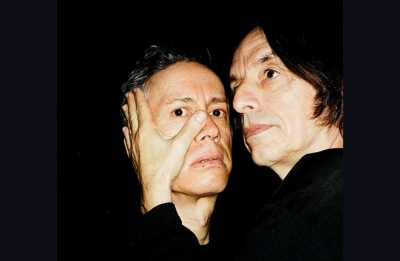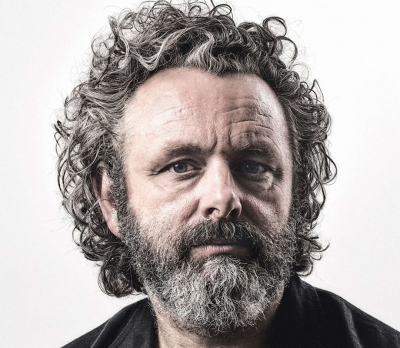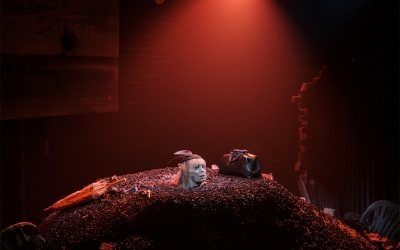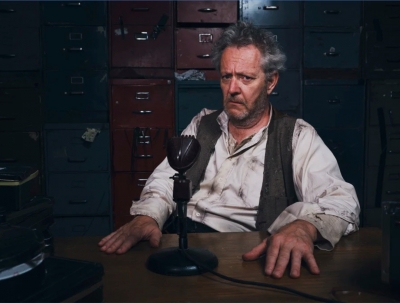Red Line Productions
The French-Romanian playwright Eugène Ionesco’s ambivalent attitude towards the power, even the usefulness, of language played out throughout his career. Speaking of Jean-Paul Sartre, Ionesco (1909–94) said that he ‘wrote an important book called Words and there he noticed that he had talked too much all his life. That words are not saying anything.’ Later, Ionesco claimed ‘[w]ords no longer demonstrate anything. Words just chatter. Words are escapism. Words prevent the utterance of silence.’
... (read more)Towards the end of the first act of Happy Days, Samuel Beckett spells out clearly the question that is at the heart of his work and that of the playwrights loosely grouped under the title ‘absurdist’. His protagonist, Winnie, buried up to her waist in earth, is describing the conversation of a couple who, wandering by, have caught sight of her. The man turns to his female companion. ‘What’s she doing? he says – What’s the idea? he says – stuck up to her diddies in the bleeding ground – coarse fellow – What does it mean? he says – What’s it meant to mean? … Do you hear me? he says – I do, she says, God help me … And you, she says, what’s the idea of you, what are you meant to mean?’
... (read more)‘Be again. (Pause) All that old misery. (Pause) Once wasn’t enough for you.’ Reminiscing is rarely a happy experience for Samuel Beckett’s characters, least of all for that most autobiographical of his creations, Krapp. In reply to a friend who had sent him a letter mentioning their good old days in pre-war Paris, Beckett brusquely wrote that there were neither good old days nor good new days. There were no good days at all. As his biographer Deirdre Bair puts it: ‘to yearn for anything in life, past or future, was unrealistic and a waste of time’.
... (read more)



